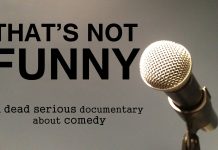In the realm of television critique, Charlie Brooker’s “How TV Ruined Your Life – Love” stands out as a satirical yet insightful exploration of the medium’s influence on our perceptions of one of life’s most complex emotions. Brooker, known for his sharp wit on Screenwipe, utilizes archive material and sketches to unravel the ways in which television, particularly programs like Blind Date and romantic comedies, molds the public’s expectations of love. The documentary poses a fundamental question: Has TV distorted our understanding of romantic relationships, and is the concept of ‘soulmates’ merely an illusion perpetuated by the small screen?
As Brooker navigates through the cultural landscape of television, he dissects the impact of dating shows like Blind Date and their role in shaping societal expectations. The article shines a light on the broader implications of these programs, questioning whether they contribute to unrealistic ideals of love and relationships. By weaving together archive footage and clever sketches, Brooker prompts viewers to reflect on how the portrayal of romance on TV may have seeped into our collective consciousness, influencing our desires, expectations, and even our beliefs in the existence of a perfect, predestined ‘soulmate.’
The heart of the critique lies in Brooker’s examination of romantic comedies, a genre often celebrated for its feel-good narratives but scrutinized here for potentially perpetuating harmful stereotypes and simplistic views of love. By deconstructing these narratives, the article invites readers to consider whether the romantic ideals presented on television contribute to an unrealistic understanding of love and, consequently, affect real-world relationships. As the curtain is pulled back on the illusions of the small screen, Brooker prompts us to question whether TV has played a role in distorting our perceptions of love and whether we, as viewers, have unknowingly bought into a fabricated notion of the ideal romantic relationship.
In conclusion, “How TV Ruined Your Life – Love” offers a thought-provoking journey into the impact of television on our understanding of love. Brooker’s satirical lens reveals the ways in which dating shows and romantic comedies may have shaped societal expectations, challenging us to critically examine the influence of the small screen on our perceptions of romance. As viewers, we are prompted to question whether the concept of ‘soulmates’ is a construct perpetuated by television, and whether our own expectations of love have been subtly molded by the narratives presented on the screen. The article invites us to peel back the layers of illusion and engage in a nuanced reflection on the complex relationship between television and our perceptions of love.

































